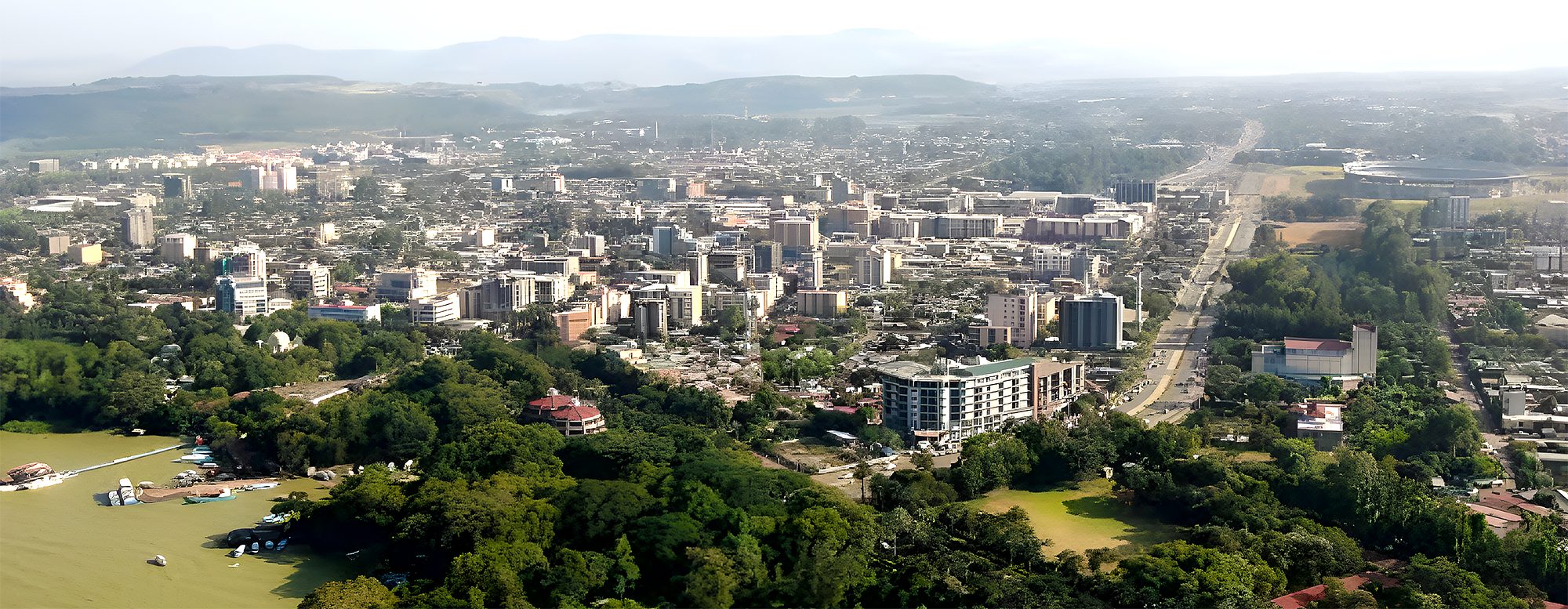
The Faculty of Computing (FC) at Bahir Dar University is located in the vibrant and picturesque city of Bahir Dar, which is home to Lake Tana, the largest lake in Ethiopia, and the source of the world's longest river, the Blue Nile. These two lakes are mixed and situated in the northwestern region of Ethiopia.
The Faculty of Computing covers all activities involving or advancing computing technologies, from developing algorithms to designing hardware and software. It blends scientific, mathematical, engineering, technological, and social aspects, influencing sectors like science, business, and engineering. As computing becomes essential to daily life, interest in the field grows, offering dynamic career opportunities that shape the future (ACM, AIS, & IEEE, 2005).
Computing emerged as a distinct field in the late 1980s alongside technological advances. It evolved from other disciplines: Computer Science from Mathematics, Information Systems from Library Science and Business, Computer Engineering from Electrical Engineering, and Information Technology from Electronics. At Bahir Dar University, the Computer Science Department was established in 2004 G.C., offering diploma and BSc programs. Later, the CSE program was launched, and Information Technology was managed by the Faculty of Business and Economics. In response to industry needs, a new Information Systems curriculum was developed, but before its implementation, the Ministry of Education mandated the integration of all computing programs, leading to their consolidation under one unit at the university.
Currently, the faculty has the following degrees in undergraduate and graduate programs.
PhD Degree
- Communication and Network Systems (4 years)
- Artificial Intelligence and Robotics (4 years)
- Data Science (4 years)
- Software Engineering (4 years)
- Cyber Security (4 years)
Master's Degree
- MSc degree in Computer Science (2 years)
- MSc Degree in Information Technology (2 years)
- MSc Degree in Software Engineering (2 years)
- MSc Degree in Artificial Intelligence and Data Science (2 years)
- MSc Cybersecurity (2 years)
- MSc Information Systems (2 years)
Bachelor Degree
4 years in Computer Science with the following Specializations
- BSc Degree in Software Engineering (5 years)
- BSc Degree in Information Technology (4 years)
- BSc Degree in Computer Science (4 years)
- BSc Degree in Information Systems (4 years)
- BED Degree in Information Technology (4 years)
- BSc Cyber Security (4 years)
Career Fields of Computing
Overview
| Computer programmer | writes code to generate programs | |
| Hardware engineer | creates, implements, and tests physical computer components | |
| Software Developer | manages the creation of computer programs | |
| Software Engineer | design and unify software creation | |
| Database Administrator | store, order, and protect company data | |
| IT Architect | design data communication networks | |
| Network Administrator | maintains the daily operations of computer networks | |
| System Analyst | streamline existing IT infrastructures | |
| Data mining and analysis | entail collecting and storing information on sales, market research, logistics, linguistics, and other behaviors. This role demands technical skills to ensure data quality and accuracy. The processed data is then formatted and presented to help individuals and organizations make informed decisions. | |
| Data Scientist | Work closely with the organization to identify challenges and use data to propose solutions for informed decision-making. Develop algorithms and conduct experiments to manage, analyze, and extract data, delivering tailored reports for colleagues, clients, or the organization. | |
| AI engineers | asked with creating innovative applications and systems that leverage AI to enhance performance and efficiency, facilitate improved decision-making, reduce expenses, and boost profitability. | |
| Cyber Security Analyst | protects networks from cyberattacks | |
| Information Researcher | creates cutting-edge technology | |
| IT Officer | monitors and maintains the computer systems and networks of an organization | |
| IT managers | expected to advise businesses on technology and how it can help them perform better, then oversee new systems design, development, and implementation. |
Student Admission
The ministry oversees the admissions and placements for all standard undergraduate programs until the university receives authorization to enroll its own students. Additionally, students who have completed their secondary education abroad may be admitted based on equivalent academic qualifications as assessed by the ministry. For undergraduate continuing and distance education programs, admissions are managed by the respective faculties in collaboration with the institute registrar, considering criteria established by the Academic Standards and Review Committee. These criteria will be formulated under guidelines from the ministry and/or HERQA.
